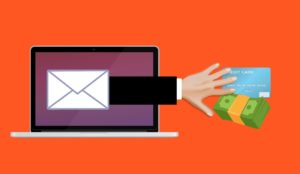Never let a good crisis go to waste!
With the onset of the Coronavirus many new opportunities for hackers have surfaced. With millions of employees working from home, hackers have more targets to access – zoom meetings, virtual private network (vpn), increase of emails.
All security measures need to be maintained with more diligence.
Keep software updated on all devices – operating systems, Microsoft Office programs, browsers and more. Keeping software up to date closes security vulnerabilities hackers can attack to get into your network.
Microsoft released updates for over 100 security issues in March affecting Windows operating systems, Microsoft Word and Microsoft Outlook. Many patches are designated as critical and you should update your system as soon as possible.
Protect your accounts. Use of strong passwords and two-factor authentication is always best practice especially during these times of working remotely.
Two factor authentication offers an additional layer of security to your account because it requires something you know (your password) and something you have (your device). When two-factor authentication is enabled, you will be required to enter a one-time code after your password. The code is sent to your phone via text message or authenticator app. Even if a hacker has your password, they would not be able to log into your account without the code.
Beware of Scams Unfortunately, hackers have not let up on scams during this global pandemic. In some cases, they are even using the virus to spread malware.
Hackers are using coronavirus global infection map to spread malware. Hackers use the legitimate John Hopkins University map tracking the spread of Covid 19 loading it on to malicious websites. When users visit the sites, malware is installed on their machines. When looking for information on this pandemic, always verify that you are using a legitimate source.
Phishing messages disguised as Covid 19 information are making the rounds. Hackers have been sending emails appearing to be from government agencies with malicious files disguised as helpful attachments or links.
Tax phishing emails continue to hit people’s inboxes. Emails include fake forms that phishers hope recipients will fill out to gather their tax and bank information.
Remember IRS will not contact you by email. Updating information for the stimulus check occurs on the IRS website portal. Delete emails you receive from IRS asking for your information.
FBI reports American consumers and businesses lost nearly $3.5 billion in cyber security crimes in 2019. There were 500,000 complaints reported to the FBI last year. Up more than 100,000 from 2018. Only $300 million was successfully recovered. $1.7 billion was lost to business email compromise scams.
The Covid 19 pandemic is a good reason to be twice as vigilant with cyber security. You can be sure hackers are doubling their efforts.
Similar Blog Post:
New Decade – New Cyber Threats Protect Your Financial Accounts

